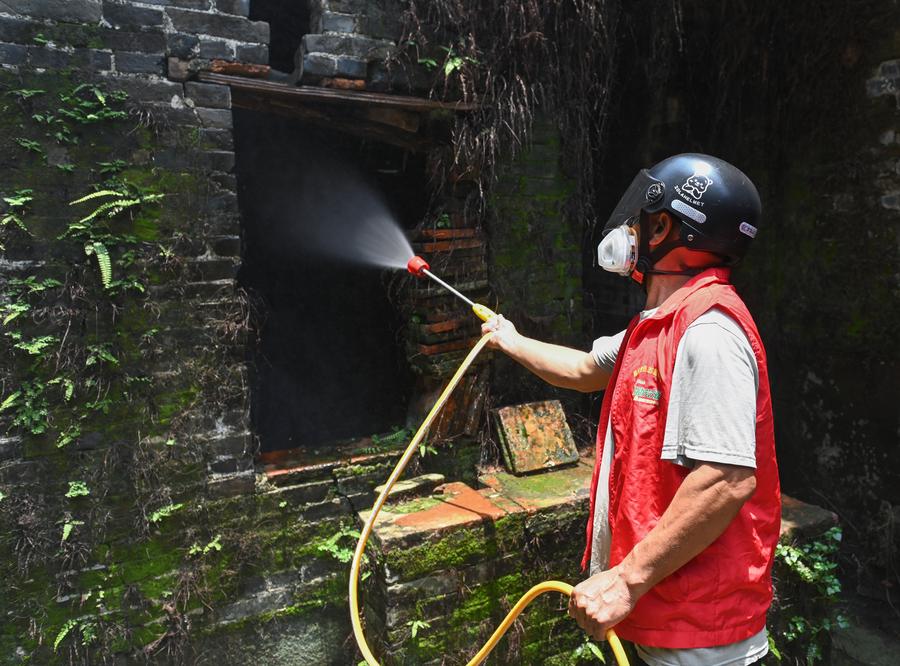Answer:
Chikungunya (Chikv) is caused by the Chikungunya virus and is transmitted from person to person through the bite of infected female mosquitoes, primarily *Aedes aegypti* and *Aedes albopictus*. These are the same mosquito species that transmit dengue fever, Zika, and yellow fever.
Chikv has been identified in over 110 countries worldwide. The most recent outbreak, in Foshan City, Guangdong Province, China, has seen over 7,000 infections, prompting local authorities to require individuals to provide personal information when purchasing fever and joint pain medication. In Vietnam, Chikv was first detected in 1975, but no outbreaks have been recorded.
The incubation period for Chikv is 2-12 days (typically 4-8 days) from the time of the mosquito bite. Typical Chikv symptoms include sudden fever accompanied by severe joint swelling and pain, headache, muscle pain, nausea, fatigue, and rash. These symptoms can be mistaken for dengue fever and Zika.
 |
Insect fogging to kill mosquitoes in a village in Foshan City, Guangdong Province, China, 25/7/2025. Photo: Xinhua News Agency. * |
Without prompt treatment, Chikv can lead to eye, heart, and neurological complications, multiple organ failure, and even death. High-risk groups include newborns, the elderly, and those with underlying health conditions. Many individuals experience prolonged joint pain after recovering from the illness.
Currently, there is no specific medication for Chikv; treatment primarily focuses on managing symptoms. According to the World Health Organization (WHO), two Chikv vaccines have been approved in some countries. However, these are not yet widely available, including in Vietnam.
To prevent Chikv, similar precautions against dengue fever should be taken: eliminating mosquitoes and their breeding grounds, and protecting oneself from mosquito bites. This includes maintaining a clean and well-ventilated home environment; removing stagnant water from containers, bottles, and tires around the house; wearing long clothing; using mosquito nets even during the day; and applying mosquito repellent. As Vietnam is currently in the peak dengue season, getting vaccinated against dengue fever is also recommended.
The dengue fever vaccine is recommended for individuals aged 4 and above, administered in two doses, three months apart. Women should ideally complete the vaccination schedule at least three months before pregnancy, or at least one month prior.
The vaccine is over 80% effective in preventing dengue fever and over 90% effective in preventing hospitalization.
The yellow fever vaccine is also recommended for those who frequently travel to, or plan to visit, regions with outbreaks, such as parts of sub-Saharan Africa, South America, and Central America. Vaccination should be completed at least 10 days before travel, consisting of a single dose for individuals 9 months and older.
Doctor Nguyen Nhu Dien
Medical Manager, VNVC Vaccination System
Readers can submit vaccine-related questions for doctors to answer here.












